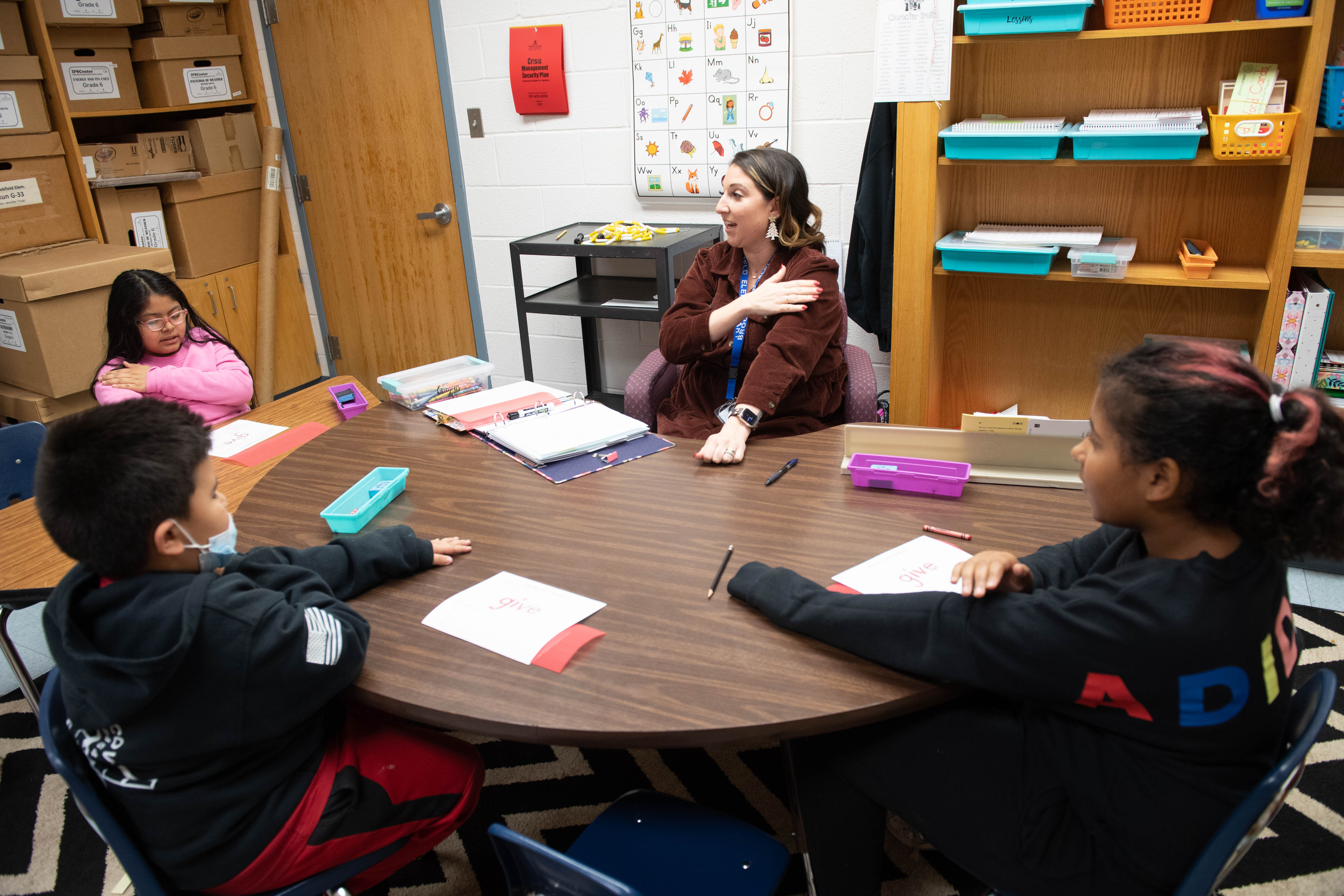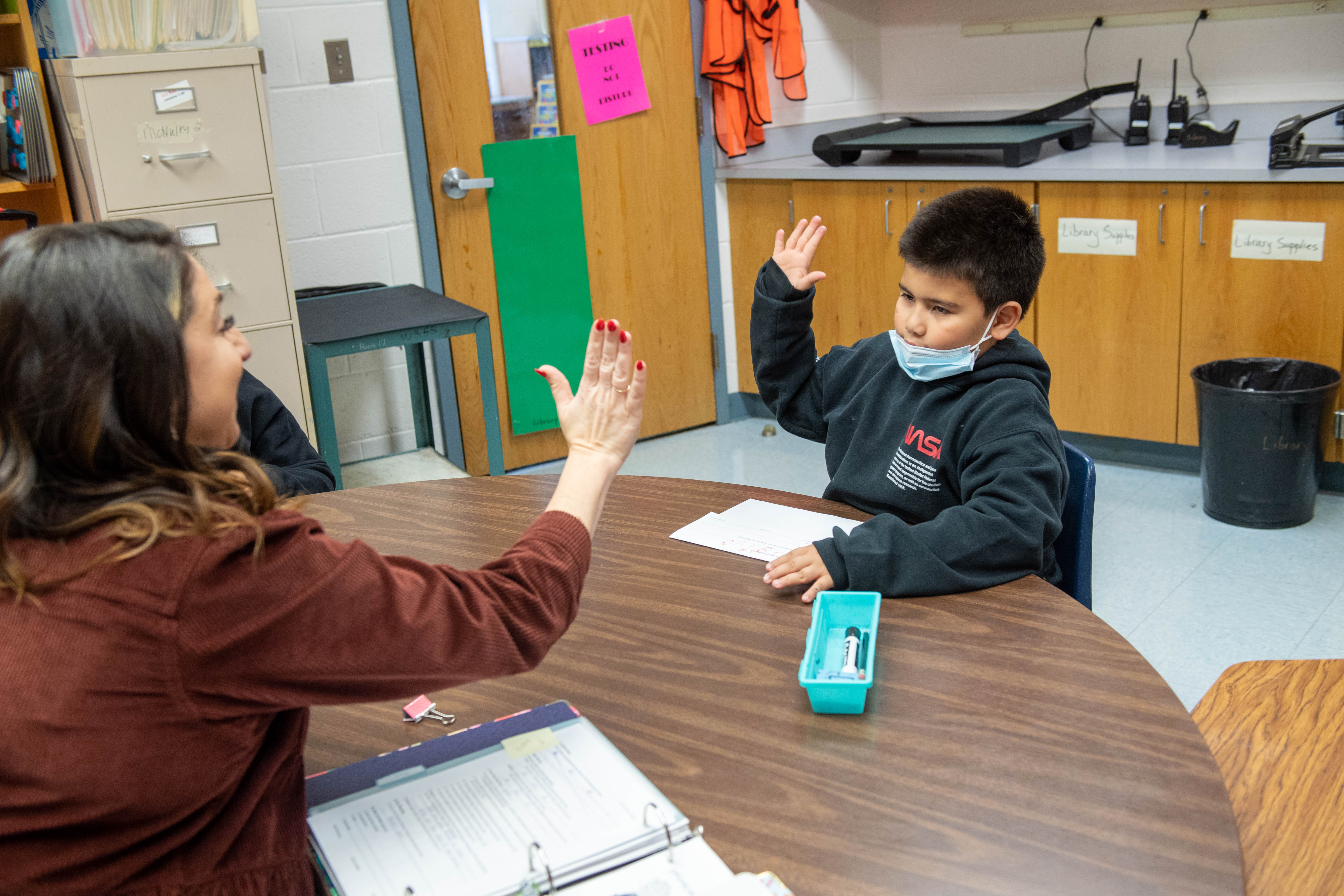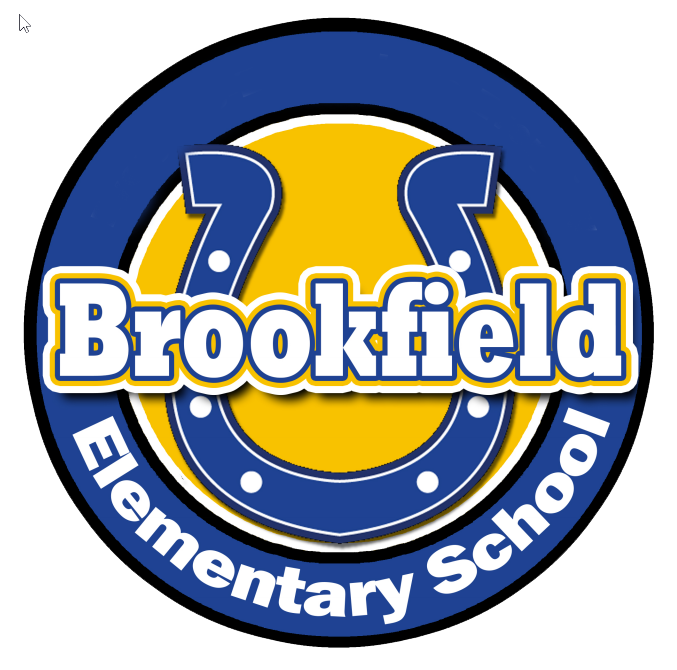“I Can Feel My Brain Getting Stronger:” ESSER Funds Help Students Make Big Gains In Small Group Work at Brookfield Elementary
“Load it, tap it, trace it,” reading interventionist Jennings Johnston says as she directs three third-grade students working on how to overcome the tricky spelling of the word “give.”
“G-I-V-E, G-I-V-E, G-I-V-E,” the students say to themselves as they tap their arms once for each letter in the word. Then, they pick up “bumpy boards” or textured mats and trace out “g-i-v-e” with their fingers on top of them.

“We do everything in 3s,” Johnston explains of her work with the students receiving daily specialized small group instruction in reading at Brookfield Elementary in Chantilly, Va. “The repetition and the movement create multi-sensory techniques that help them remember, and store it in their brain. There is a connection when we incorporate all the senses in learning instead of rote memorization.”
Roughly 35 students at Brookfield are receiving the intervention services in reading; 40 or so receive similar small group help in math. The teachers are trained in evidence-based instruction techniques to help students overcome any learning gaps that may have been exacerbated by the pandemic.
The intervention teachers’ salaries, their training and their instructional materials are all funded by Elementary and Secondary School Emergency Relief aid, or ESSER III funding – money given to states by the federal government to help address any pandemic-related issues that may be impacting students.
Educators reviewed standardized testing data, teacher recommendations and work samples to decide which students to target for services and materials funded by the federal money.
It’s paying off at Brookfield, they say.
Justin, one of the third-graders working on the spelling of “give,” with Johnston, struggled to identify most letters and sounds in fall 2021 when students returned for the first year of fully in-person instruction since the pandemic began in March 2020. After a year of reading intervention services, he knows all letters, sounds and made more than two years of progress in his reading skills in one academic year, according to testing data maintained by his school.

“Last year, at the beginning of second grade, Justin struggled to participate and would often shut down, but as the year went on and he logged a few months of intervention, you could see a real change,” says reading resource teacher Stephanie Carr. “He wanted to read the books selected, he wanted to put what he was learning into practice.”
Interventionist Johnston agrees Justin has shown significant growth. “Now, if we point to a word on the board, he’ll say “Ssshhhh, don’t do it, I’m gonna figure this out on my own.”
“In fact, Justin has pulled ahead of many kids. He not only gets it, he knows why,” Johnston says. On a recent reading pre-test he was able to correctly spell 13 of 23 words before being exposed to them, she says, while the average for students in the small groups was three out of 23.
“It’s more than that though, you can tell from his affect in the classroom that he feels comfortable now,” Johnston says. “He’s confident, raising his hand and participating.”
Justin, who made so much progress he graduated from the program in February, says he noticed a difference too.
“I can feel my brain getting stronger.”
Learn more about the use of ESSER funds in FCPS.
